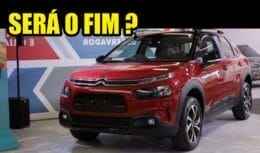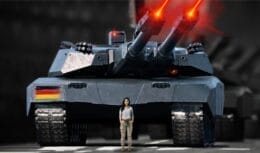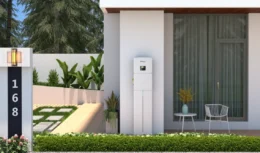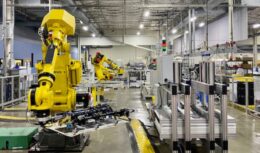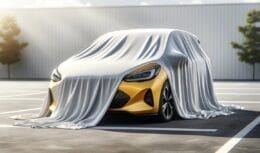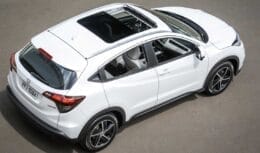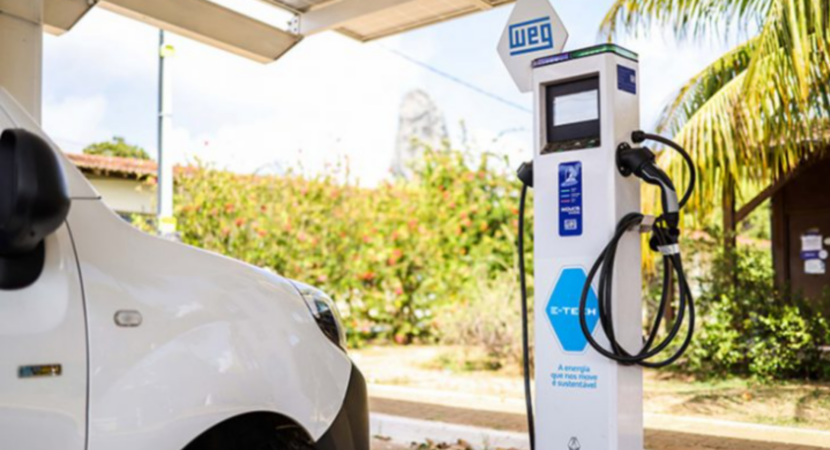
WEG left the Mercedes-Benz factory equipped to recharge electric vehicles with the installation of three ultra-fast charging stations
WEG, one of the largest manufacturers of electrical equipment in the world, continues to reinforce its reputation, now supplying ultra-fast charging stations and products for the energy distribution infrastructure of the new Mercedes-Benz bus factory, in São Bernardo do Campo, in the state of São Paulo. Check out this news: Mercedes-Benz sells car factory in Iracemápolis (SP) to Chinese Great Wall Motors
- Marco Legal will bring investments and reduce bureaucracy for the construction of new railroads
- After an investment of BRL 55 million, the new Itatiaia factory will generate 500 jobs in ES
- New undertaking by the Maratá Group promises to generate 250 job opportunities in the Sergipe region
- ClearSale opens selection process for home office jobs in SP and PR with salaries of up to R$ 15 thousand
- Technip starts recruitment and selection for vacancies in Macaé, Porto do Açu, Rio de Janeiro and Espírito Santo
The WEG charging station installed at the Mercedes-Benz factory
In addition to equipping the new manufacturing unit with its line of BWW armored buses, WEG left the Mercedes-Benz factory equipped to recharge electric vehicles with the installation of three ultra-fast charging stations from the WEMOB line – WEG Electric Mobility, 150kW Station model , ideal for ultra-fast recharging of heavy-duty vehicles using CCS2-DC standard direct current.
Capable of fully recharging the electric buses' lithium batteries in up to three hours, the WEG stations at the Mercedes-Benz factory support high voltage recharging standards, up to 920Vdc, maintaining constant power, providing the best recharging experience for all electric vehicles. The equipment also has secure access control via RFID or app, energy meters and all built-in protection devices for safe charging.
The projects that WEG installed in the manufacturing unit
WEG supplied products for the energy distribution infrastructure of the new Mercedes Benz bus factory, in São Bernardo do Campo, in São Paulo. Manfred Peter Johann, superintendent director of WEG Automação says that creating solutions for a more sustainable world, meeting the needs of the automotive industry, is part of our commitment to make electric mobility a reality in Brazil.
The armored busbars installed in the new Mercedes-Benz factory are ideal products for the electrical infrastructure of the automotive industry, as they allow quick lay-out changes without the need for complex changes in the energy distribution network. Designed for indoor use, the buses are safe, robust, compact, flexible and modular. The conductive bars are coated with tin through the electrolysis process throughout, providing total protection against the appearance of oxides of the conductive metal and preventing galvanic corrosion in the connections.
Check out this news: With national technology, Mercedes-Benz announces production of electric buses in Brazil
The German automaker Mercedes-Benz is investing in electric mobility and announced this week its first electric bus in Brazil, in a project where more than R$ 100 million were injected. The new announcement contemplates the e0500U chassis, which is a standard low-floor urban model that has been in development for five years, the company estimates that sales will begin in 2022.
The e0500U is a bus with standard measurements, it is 13,2 meters long, in addition to a low floor and a total capacity of up to 83 passengers, which makes it a model identical to those powered by diesel. With a constant power of 250 horsepower, the vehicle can reach peaks of up to 380 horsepower, all using a ZF electric drive axle that has two motors, one on each rear wheel.
The battery autonomy of the Mercedes-Benz electric bus is 250 km with a recharge that can be performed in two and a half hours, it is equipped with four battery modules, two under the roof and two under the floor, and even can receive two more modules that increase the autonomy of the bus to 300 km. The e0500U has a total weight of 8,1 tons in its chassis, and weighs 14,8 tons together with the body, 2 tons more than what is usually found in diesel vehicles. It is not yet known which bodies will be used, but negotiations are already taking place with companies in Brazil to establish partnerships.


